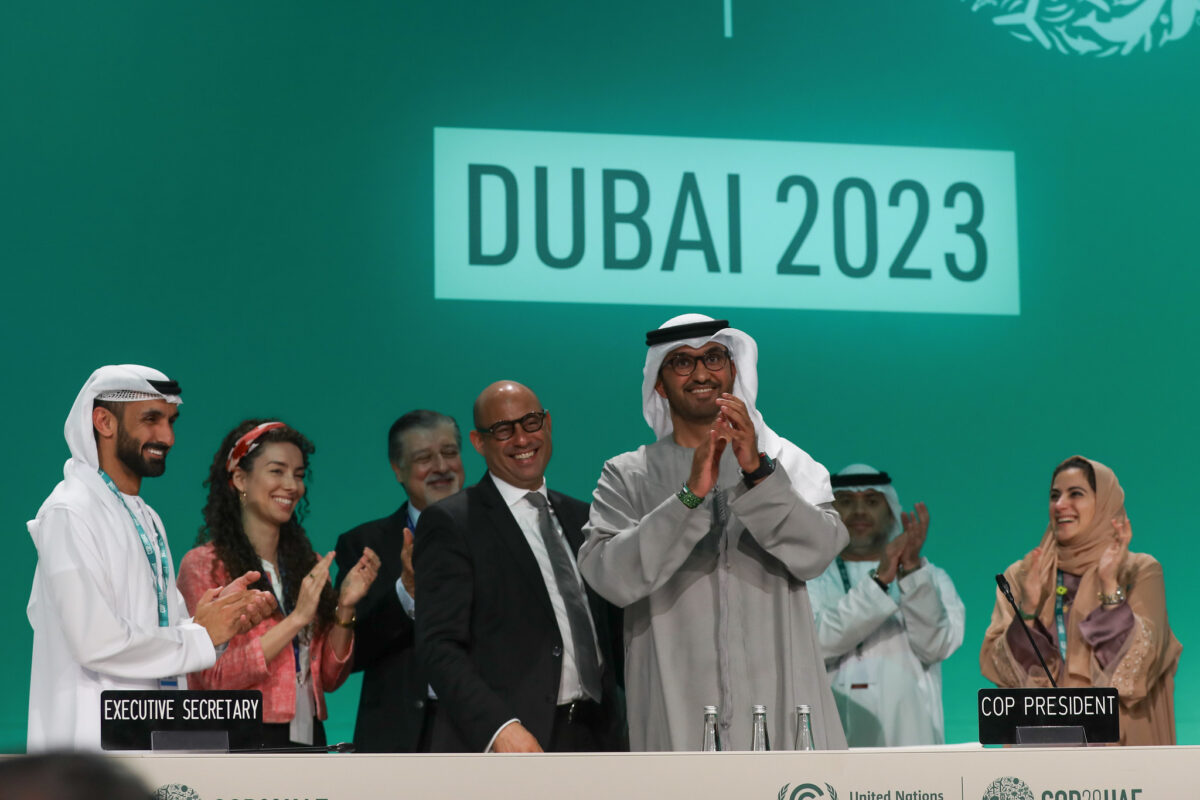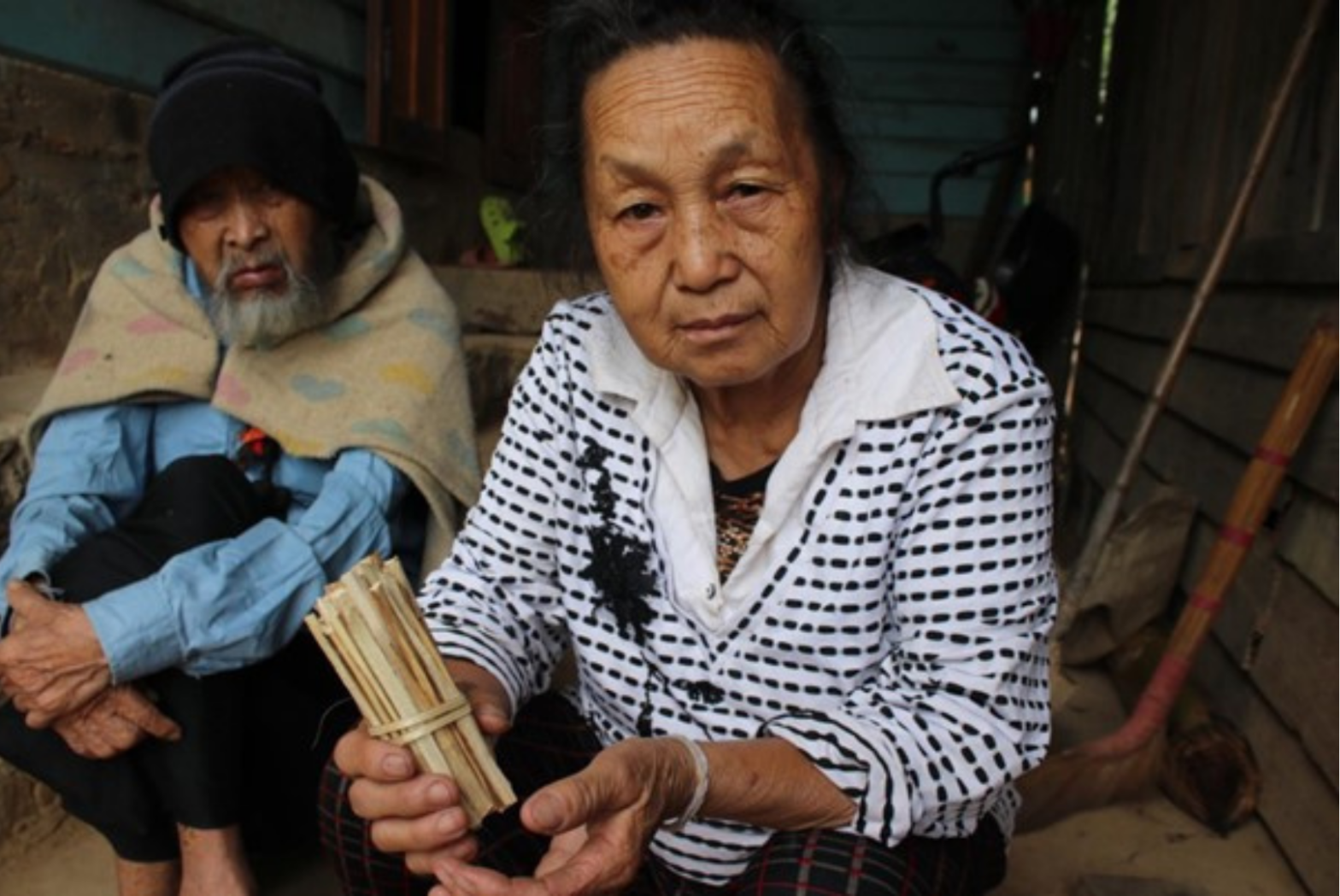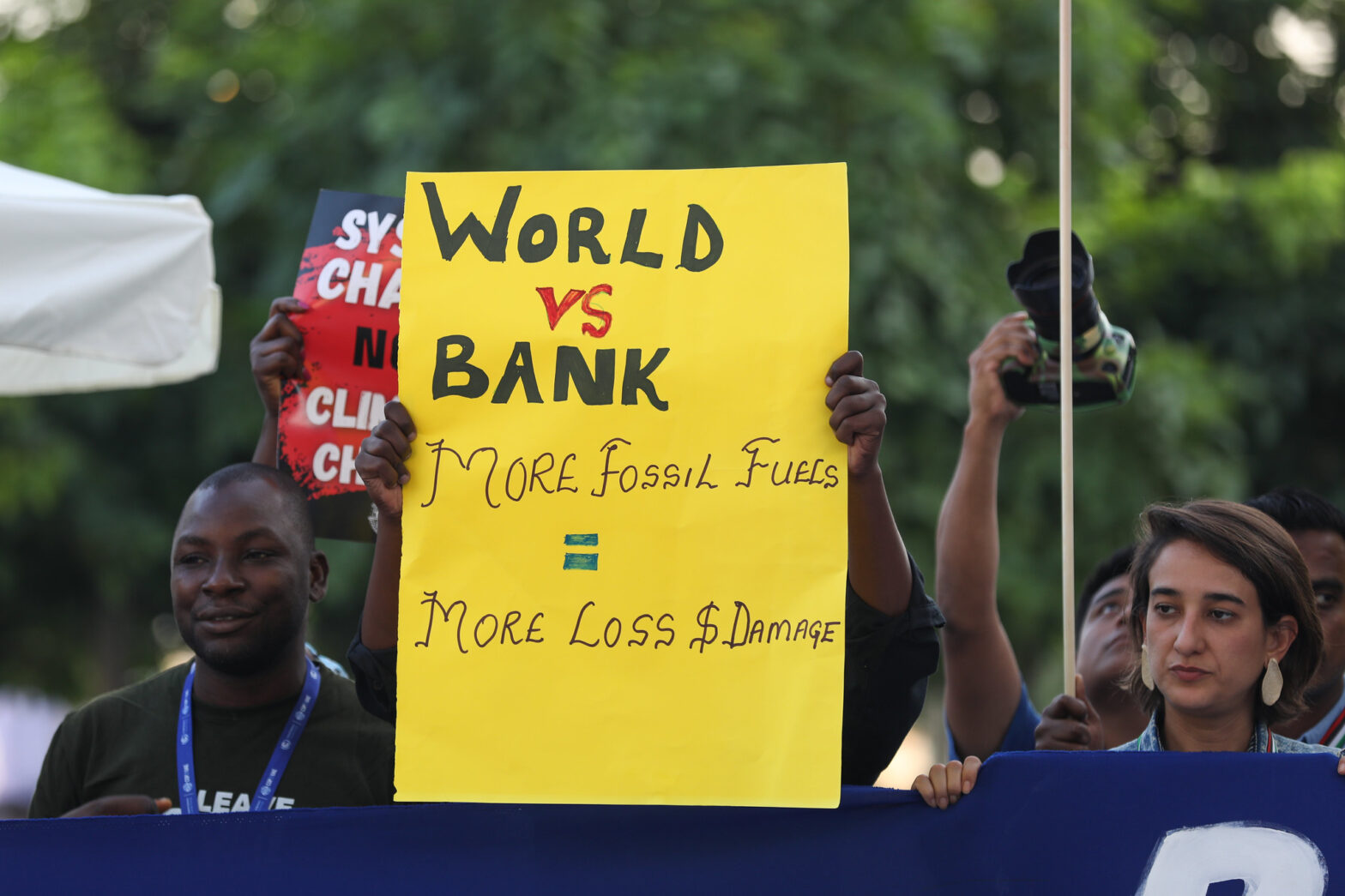DUBAI, UNITED ARAB EMIRATES – The head of Thailand’s climate delegates at COP28 has stressed the need to reform climate finance to make it more accessible and affordable, while confirming the country’s commitment to tripling renewables by 2030 and phasing out all coal-fired power plants by 2050.
After two weeks of heated debate at COP28 in Dubai, the final decision was released on Wednesday, December 20, and contained weak language on fossil fuels and the obligations of wealthy nations to propel climate finance.
This disappointed many countries, especially small island nations on the climate frontline, who say the decision does not address the urgent need to phase out all types of fossil fuels – the main cause of global warming.
However, the decision is the first COP agreement that mentions fossil fuels, which the president of COP28, Sultan Al-Jaber, declared would lead to the end of the fossil fuel era.
The decision, which was the world’s first ‘global stocktake’, calls on countries to triple renewable energy capacity and double energy efficiency improvements by 2030. It also urges the phasing down of unabated coal power, phasing out inefficient fossil fuel subsidies and a just transition away from fossil fuels in energy systems.
Establishing the loss and damage fund was a big part of the decision, which will lead to the launch of a financial mechanism to transfer funds to climate-vulnerable countries next year.
The COP28 agreement will have implications on countries’ energy and climate policy in the following decade, with no exception for Thailand – the Southeast Asian nation of more than 71 million people that relies on conventional energy like natural gas and oil for its economy.
The country has committed to cutting greenhouse gas emissions by 30% by 2030, or 40% if it receives capacity building, technology and financial support. It made a strong stand for getting grants and low-interest loans that would determine its level of success in its green transition.
Phirun Saiyasitpanich, a leading player in the Thai negotiating team at COP28 and the Director of the Department of Climate Change and Environment, emphasized the importance of the word “just” in the just transition.
He believes that if the transition is unfair, the transition is unlikely to happen. This reflects the common but differentiated responsibilities principle held by developing nations, which calls on all states to respond to climate impacts while urging the rich countries to pay the price for global warming caused during their industrial periods.
In a recent interview with Mekong Eye, Phirun explained Thailand’s position at the latest COP meeting and how the country will steer toward climate transition and obtain financial assistance.
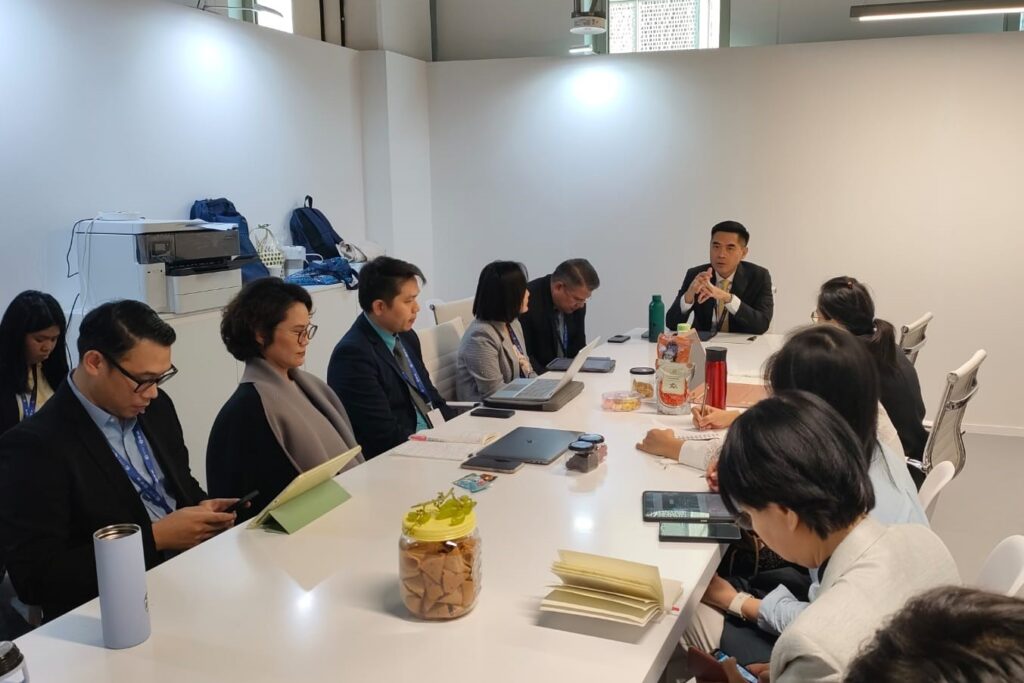
Mekong Eye: What was Thailand’s stand at COP28?
Phirun: We have followed the world’s demand for climate action, and our actions will be aligned with the calls in the COP28 agreement. Tripling renewables by 2030 is already committed in our National Determined Contribution (NDC). It is a collective global effort, not a target to be achieved by one country.
Our main concern is not whether we can achieve the target suggested in the COP28 decision. We are more concerned about the means of implementation like climate finance, technology transfers and capacity building. We want to see the flow of climate finance to developing countries, which is a call from G77 plus China that Thailand is part of. Our group makes it clear that we will accept only grants or concessional loans when seeking climate finance.
Mekong Eye: What do you think about the critics of weak fossil fuel language in the COP28 agreement, or the call for phasing down unabated coal power?
Phirun: Our target is aligned with the COP28 decision. We have already committed in our NDC that none of the coal-fired power plants will exist in Thailand by 2050. It’s part of the country’s plan to reach carbon neutrality by the same year and net zero by 2065. We highlighted a transition in the energy sector, of which greenhouse gas emission is equivalent to 70% of the country’s overall emissions.
But before we can phase down coal, we will need to access carbon abatement technologies, which also require financial support. What had been discussed in COP28 was to force the early retirement of coal-fired plants.
If we must suspend all plants immediately, we must absorb the immense costs of the investment that has already been made and the loss from the plants’ remaining operational lifetime. The impacts of the transition would go somewhere. If it is electricity, it will go to the consumers through increasing electricity bills. We must ask if this is a ‘just’ transition. Financial support will be needed to offset these impacts.
Mekong Eye: As you mentioned, Thailand aims to reach the net-zero goal by 2065. But this is 15 years delayed when compared with most countries’ targets for net zero by 2050. Why did we set this target, and can we shorten the target year?
Phirun: The prolonged net-zero plan links to the non-CO2 sectors and we are unsure if we can achieve a transition without external support. These include agriculture, the cooling sector, the petrochemical industry and municipal waste and sewage management.
For example, we must deal with 14 million farmers and an area of 2.4 million hectares when thinking about reducing methane in the agricultural sector. In the livestock sector, there are millions of farmers involved. For managing municipal solid waste, there are more than 2,000 landfills across the country.
Many stakeholders must be involved in the transition here, and we can’t commit if everyone jumps in the same boat. That’s why we need more financial assistance to speed up the massive scale of transition. We can always adjust our net-zero goal once we are certain that we can make it.
Mekong Eye: It’s clear that Thailand needs financial support in many areas. Will Thailand access any climate finance committed through COP28?
Phirun: We have had discussions with many financial entities and will focus on the Green Climate Fund, of which total pledges stand at US$12.5 billion. Another mechanism we are looking at is the Adaptation Fund, which has allocated around $998 million to climate adaptation activities worldwide. We are reaching out to Germany, which is a donor country in the Mitigation Action Facility that welcomes a pilot project with a funding volume of 25 million euros ($27.3 million) per project.
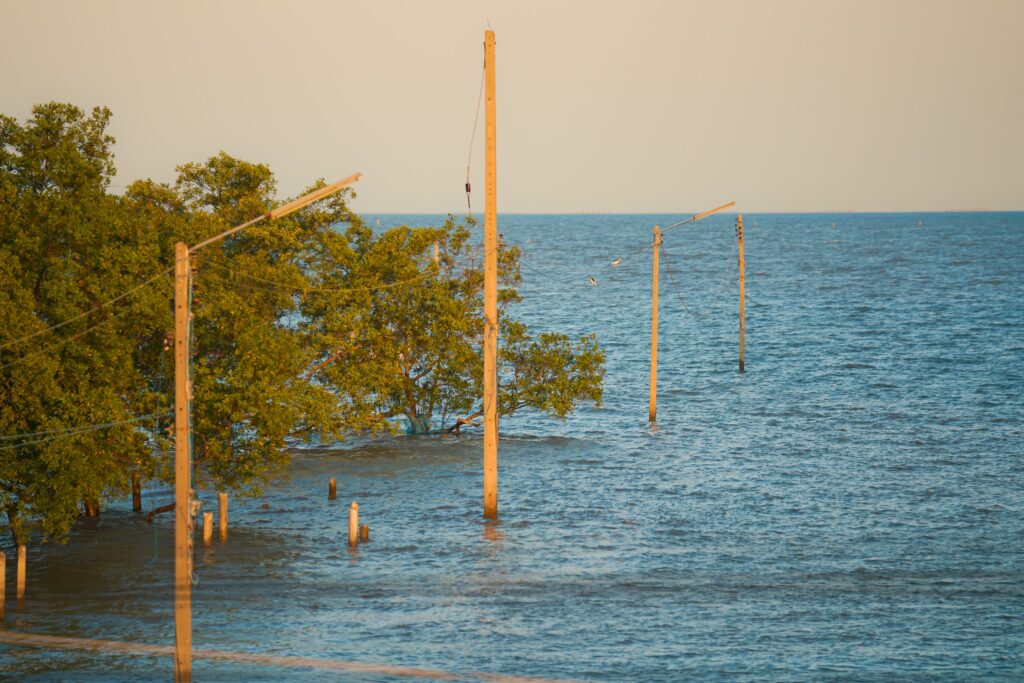
Mekong Eye: On adaptation, how do you expect to see the financial flow assisting Thailand?
Phirun: There was a lot of discussion on adaptation finance at COP28. However, the final decision could have been better and could not reach a satisfactory point for all developing countries. But at least we could establish the loss and damage fund. More than $700 million was pledged at COP28, and we expect to see the start of fund allocations in 2024.
Mekong Eye: Do you think Thailand will be able to access the fund? Do we need to find ways to prove that we’re vulnerable and need financial assistance, just like the least developed countries and small island nations?
Phirun: First, we need to find the board members of the loss and damage fund, which will include representatives from both developed and developing countries. Then the board will need to address the criteria for accessibility to the fund.
We’ve followed the progress of establishing the fund closely as we don’t want to miss the train. All climate-vulnerable countries should be able to access this fund, and data is proving that Thailand is among the top 10 vulnerable countries to extreme weather caused by climate change. We must come up with projects that prevent loss and damage, like the improvement of early warning systems and farming management.
Mekong Eye: Developing countries have demanded climate finance reform to make it easier and affordable to access. Have you seen any reform so far?
Phirun: I didn’t see it in this COP. We hope to see reform through the loss and damage fund. If the accessibility criteria are like the Global Environment Facility and the Green Climate Fund, the loss and damage fund will not answer the call for climate finance reform.
I know there is no free lunch here, especially in the current economic slowdown in the post-Covid-19 pandemic. If we don’t get the full grants, we are looking for blended finance like the combination of grants and concessional loans with lower interest rates. It will make green projects more affordable.
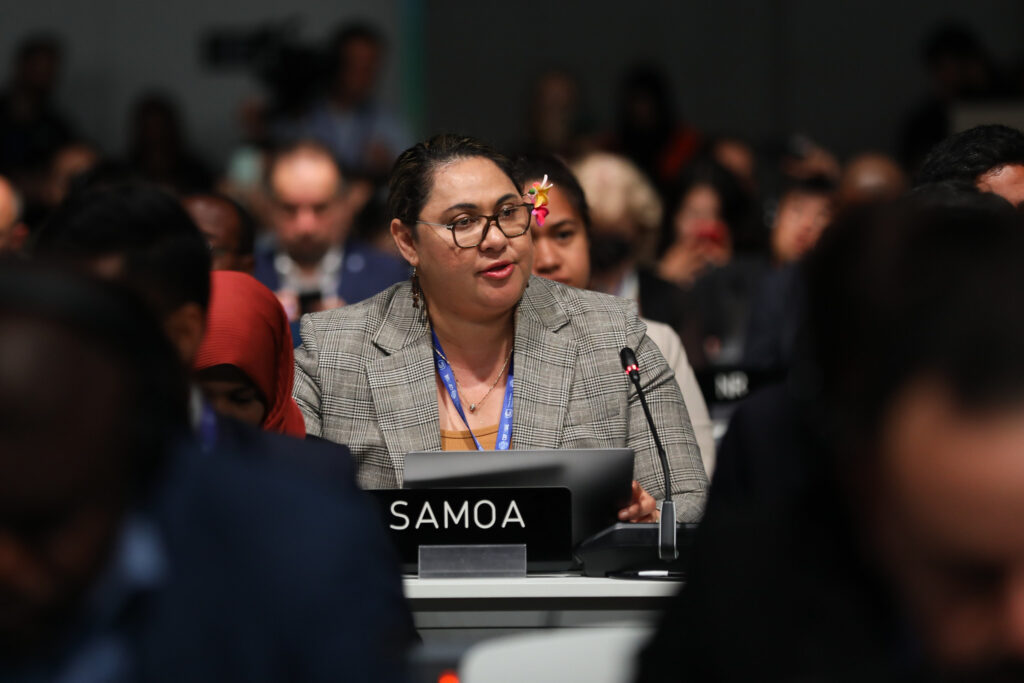
Mekong Eye: In post-COP28, what do you plan to do to answer the calls in the agreement?
Phirun. Under the Department of Climate Change and Environment, we will work with all stakeholders on proposals to get financial support. Our team will facilitate negotiations and discussions with countries that hold seats on the boards of climate funds.
The Thai government has prioritized all sectors, all aspects, and the people. We will head toward a just transition that also includes the voices of the communities. We will not allow greenwashing.
Early next year, we will issue a National Greenhouse Gas Reduction Operation Plan that addresses the unconditional and conditional 2030 targets in each sector. The plan will help us estimate the amount of funds needed for mitigation and adaptation, where this money will come from, and how much is needed from the government budget.
The story was produced as part of the COP28 Climate Change Media Partnership Reporting Fellowship co-organized by the Internews’ Earth Journalism Network and the Stanley Center for Peace and Security.


